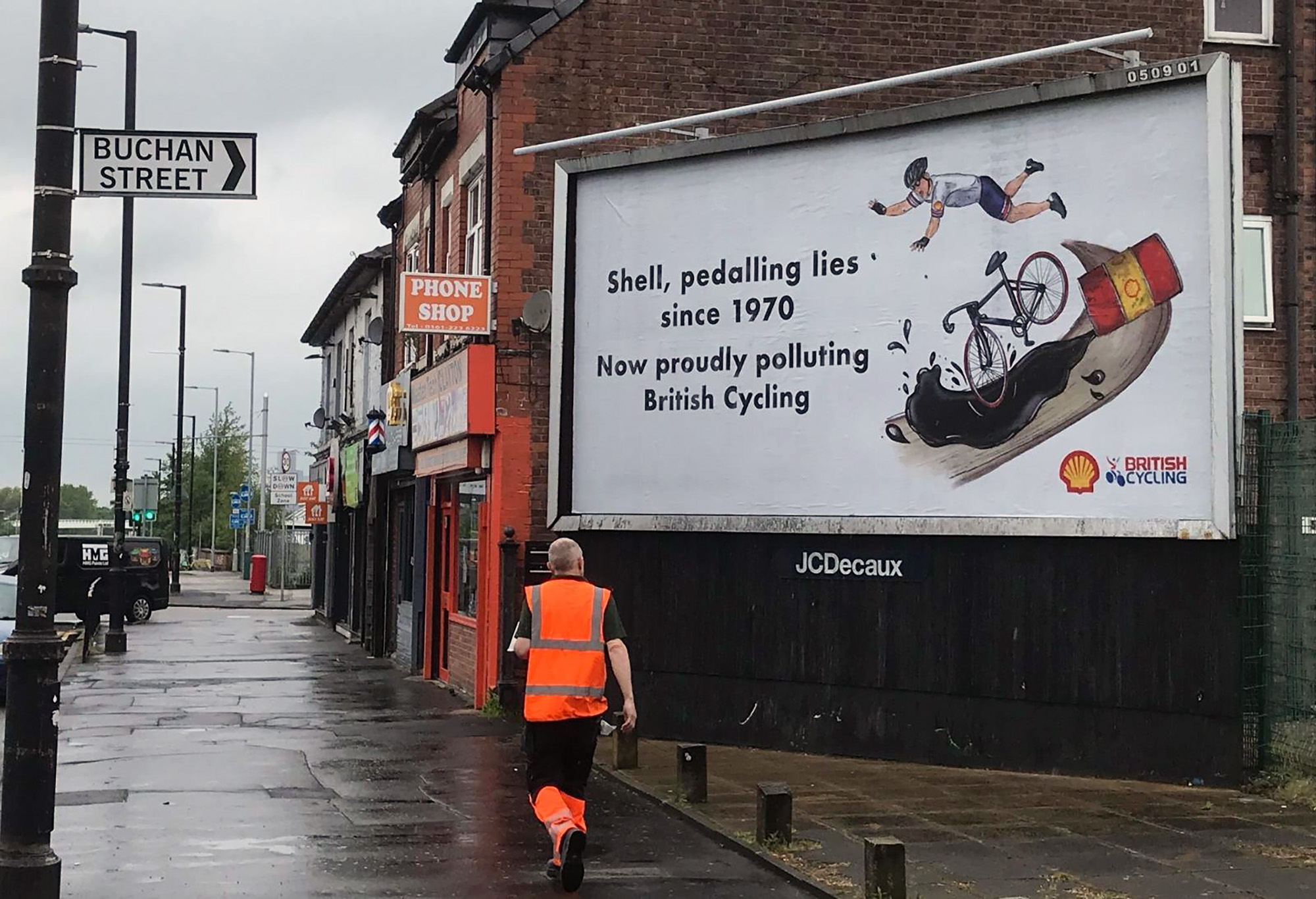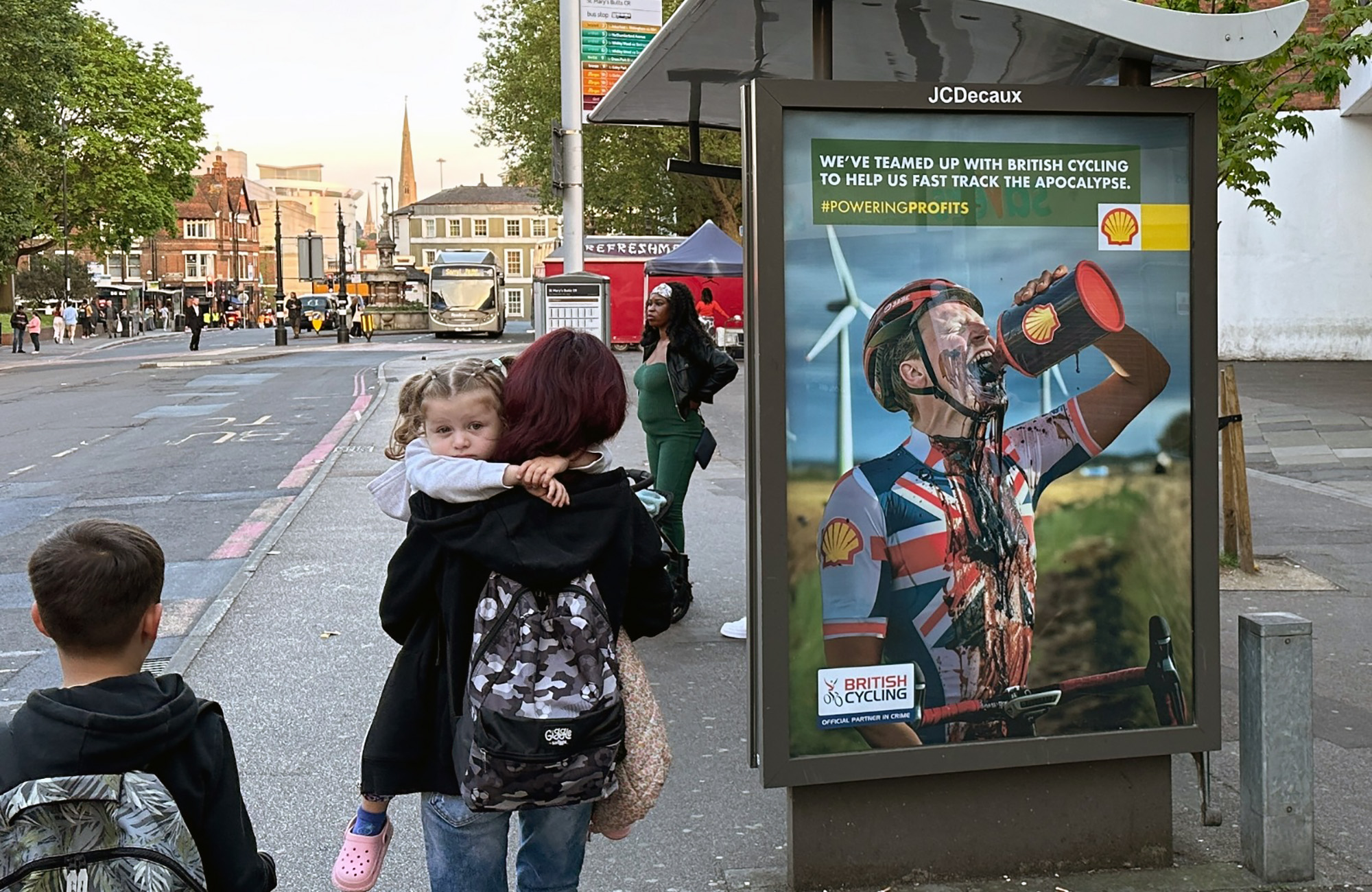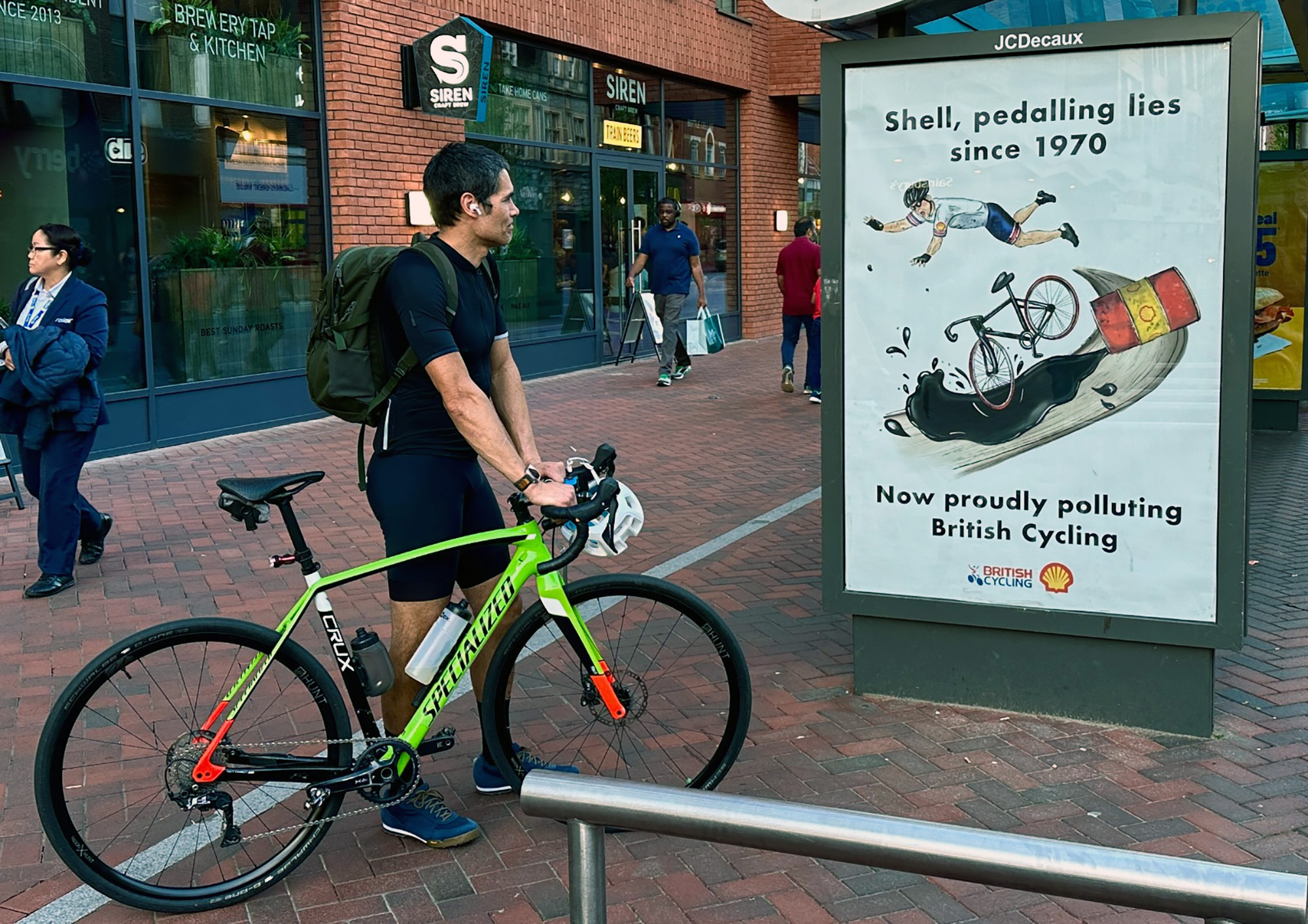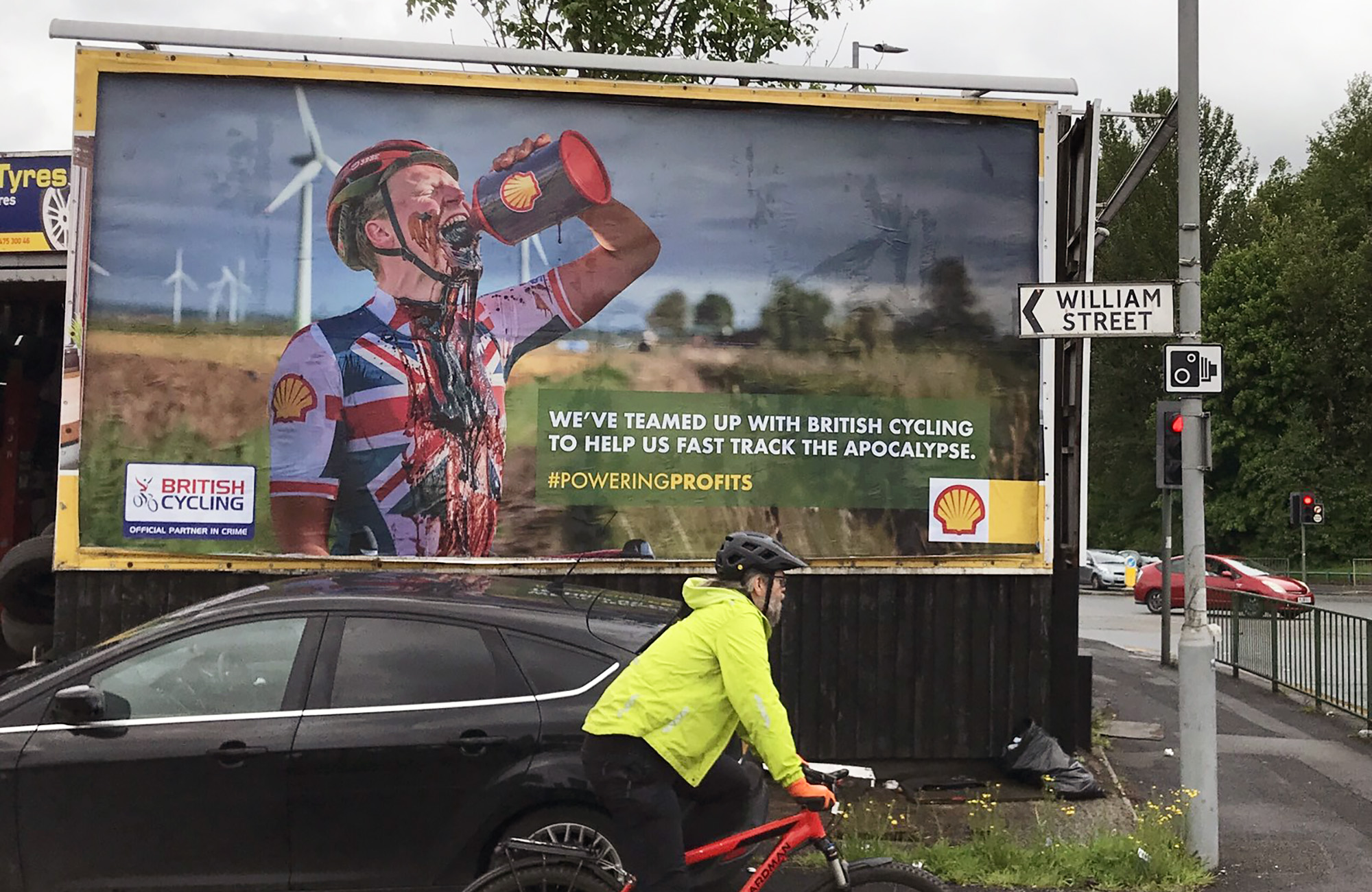Advertising billboards across the UK have been taken over without permission to protest Shell's sponsorship of British Cycling.
As part of a wider campaign ahead of the oil and gas company's annual general meeting next week, 200 posters have gone up around the country in London, Bristol, Reading, and Norwich on billboards repurposed by activists from the anonymous Brandalism collective.
In an Olympic year, the only time every four years where most of the UK are even vaguely aware of bike racing, the posters give context to the yellow Shell logos that will adorn the shoulders of British athletes at the Games in Paris.
Most of the cycling-specific images targeting British Cycling and the sponsorship deal they signed with Shell in October 2022 have gone up near the governing body's Manchester headquarters.
One image shows a cyclist in mock GB kit drinking oil from a Shell bottle with the tag line "we've teamed up with British Cycling to fast track the apocalypse," with British Cycling's logo adapted to read "official partner in crime."
Another shows a cyclist slipping on a barrel of spilled oil with the text: "Shell, pedalling lies since 1970. Now proudly polluting British Cycling."

Brandalism, an international collective of artists and activists that confront the power of big business and their public relations advertising, say the artworks "target Shell’s use of sports sponsorships, youth marketing and political lobbying to maintain its reputation despite expanding fossil fuel production and recent u-turns on green pledges," and add the company's association with cycling mirrors tactics once employed by Big Tobacco.
“To quote the tobacco marketers of the 1980s, 'The problem is how do you sell death?' Shell is on a mission to sell its own lethal legacy, using influencers, greenwash advertising, sports sponsorship, and political connections to deflect attention from its growing contribution to climate breakdown, which is reversing decades of progress in health and causing death and destruction worldwide," Tona Merriman from Brandalism said.
“Shell’s insidious tactics are straight out of Big Tobacco’s playbook, enabled by a toxic coterie of advertising and PR agencies who should be helping to kick fossil fuel companies into history, not boosting their brand.”

In a statement provided to Escape Collective that did not directly address those criticisms, British Cycling said Shell's support had helped the organization develop broader initiatives:
“Through our partnership, Shell UK has made a long-term commitment to cycling in Britain, and our Limitless disability and para-cycling programme along with support in the development of our long-term sustainability strategy which will be published later this month, are both tangible examples of how we are together making a positive impact on our sport.”

A spokesperson for Shell said in a statement provided to the Manchester Evening News: "We respect people’s right to express their point of view and welcome any constructive engagement on our strategy and the energy transition. However, these protest ads are misleading, not constructive and completely mischaracterise the nature of our partnership with British Cycling.
"Shell UK continues to support British Cycling and the Great Britain Cycling Team’s cyclists and para-cyclists through the sharing of technology and innovation, widening access to cycling, and accelerating decarbonisation efforts."
We followed up with British Cycling, asking whether they respected people's right to express their point of view on Shell, and whether they thought the protest ads were misleading.
They said they'd rather stick to their original comment.
Did we do a good job with this story?


